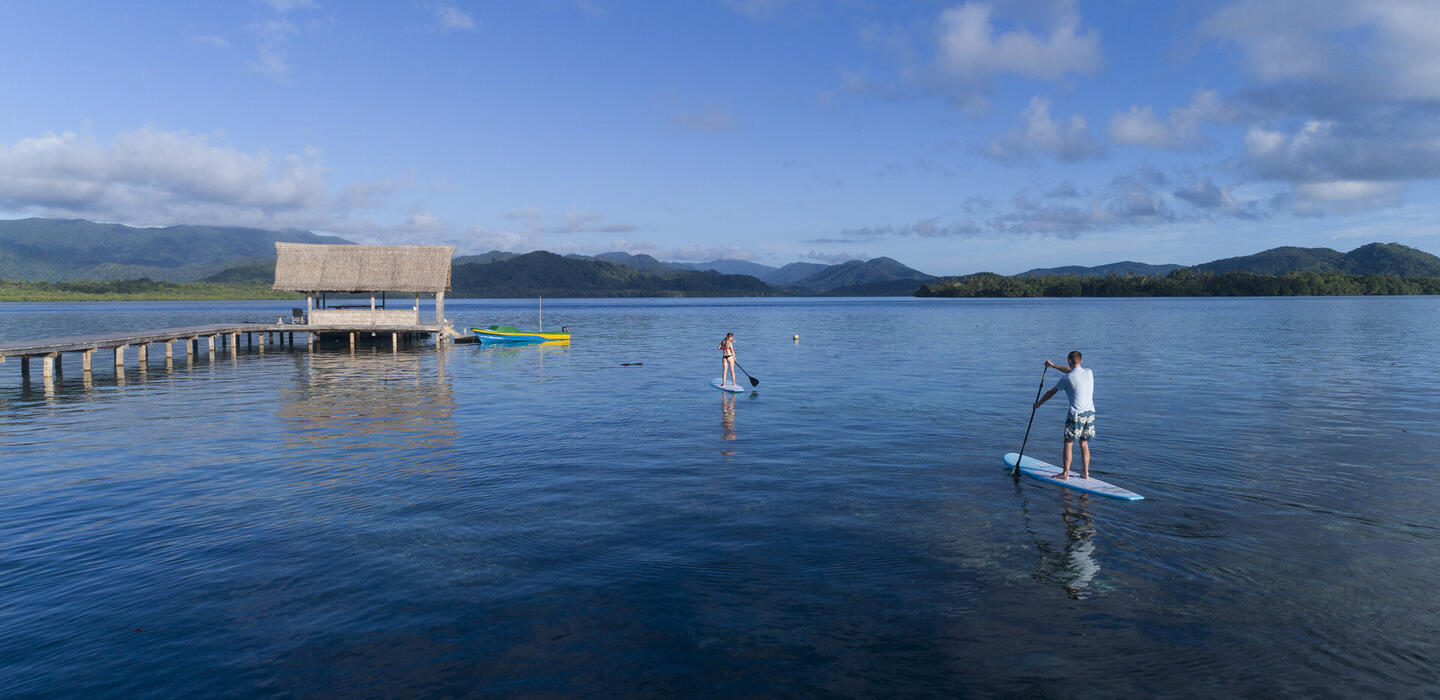- Home
- Solomon Islands
- Travel Tips
Solomon Islands Travel Tips
When to Visit
 While the weather in the Solomon Islands may be hot and humid all year round with an average temperature of 27 degrees Celsius - cooling sea breezes help moderate temperatures.
While the weather in the Solomon Islands may be hot and humid all year round with an average temperature of 27 degrees Celsius - cooling sea breezes help moderate temperatures.
There are two distinct seasons - a wet season from November to April and a dry season from May to October. As the dry season is when rainfall, humidity and temperature are at their lowest, and is the most popular time to visit this tropical Island paradise.
There are benefits for visiting in the wet season, much like the northern tip of Australia, regular downpours mean lush green vegetation and cooler weather, this is often the quieter time of year to visit if crowds are not your style.
Language
Welcome to a linguist’s dream! English is the official language of the Solomon Islands, but over 70 Indigenous languages are spoken across the islands. Solomon Islands Pijin, a lively English-based creole, connects communities with its rhythmic, everyday charm.
Time Zone

The Solomon Islands run on UTC+11, just like New Caledonia.
At just one hour ahead of Brisbane all year long, and during daylight savings time matching Sydney's time - this makes visiting this adventurers paradise an easy hop into coral reefs, traditional villages, and World War II history—where time feels different, even if your watch barely moves.
Enjoy the same hours of daylight on your next holiday with this barely noticeable time change!
Currency
The official currency of the Solomon Islands is the Solomon Islands Dollar (SBD). However, Australian dollars are widely accepted in major tourist areas, so there's no urgent need to exchange currency upon arrival. It's advisable to carry cash for transactions, especially in more remote areas where credit card acceptance may be limited.
In terms of expensiveness, while the cost of living in the Solomon Islands can be lower than in Australia, prices for tourist activities, accommodations, and dining can vary. Budget-conscious travellers can find affordable options, especially when exploring local markets and eateries, while more western style resorts cater to those seeking a more lavish experience.
Travel Insurance

Travel insurance is highly recommended when visiting the Solomon Islands on your next holiday.
While the stunning scenery, peaceful townships, fascinating history and welcoming people are just some of the drawcards that bring travellers to the Solomon Islands each year - unexpected emergencies or accidents can always occur.
In such an adventurous destination where hiking, diving, surfing and boat trips are big drawcards, it is imperative to review your travel insurance policy details to ensure it adequately covers your needs.
When reviewing your Travel Insurance needs, it is a good idea to confirm coverage for unexpected events such as lost luggage, trip disruptions and cancellations, and medical emergencies.
Electricity
Solomon Islands use Type I plugs and 230V voltage, just like Australia. One less thing to think about between reef dives, WW2 site visits and rainforest hikes.
How to get there

Flying to the Solomon Islands couldnt be easier. Direct flights from Australia to the Solomon Islands are available multiple times per week to Honiara, the capital city, with a flight duration of approximately three hours. From Honiara, transits to outer islands are seamless on domestic connections.
If you are curious about the ideal duration of your stay, it depends on your interests and itinerary. A week may suffice for a relaxed beach holiday, but those eager to explore multiple islands and fully immerse themselves in the local culture should opt for a longer stay of 10 days.
Entry Requirements
Australian citizens planning to visit the Solomon Islands must possess a valid passport with at least six months validity remaining beyond their intended stay. Fortunately, tourists from Australia do not require a visa for stays of up to 90 days. However, it’s always prudent to double-check entry requirements before departure, as they may be subject to change. This same advice applies to tickets and documentation. Currently middle names are not required on either but be sure to confirm this at the time of booking as immigration conditions may vary.